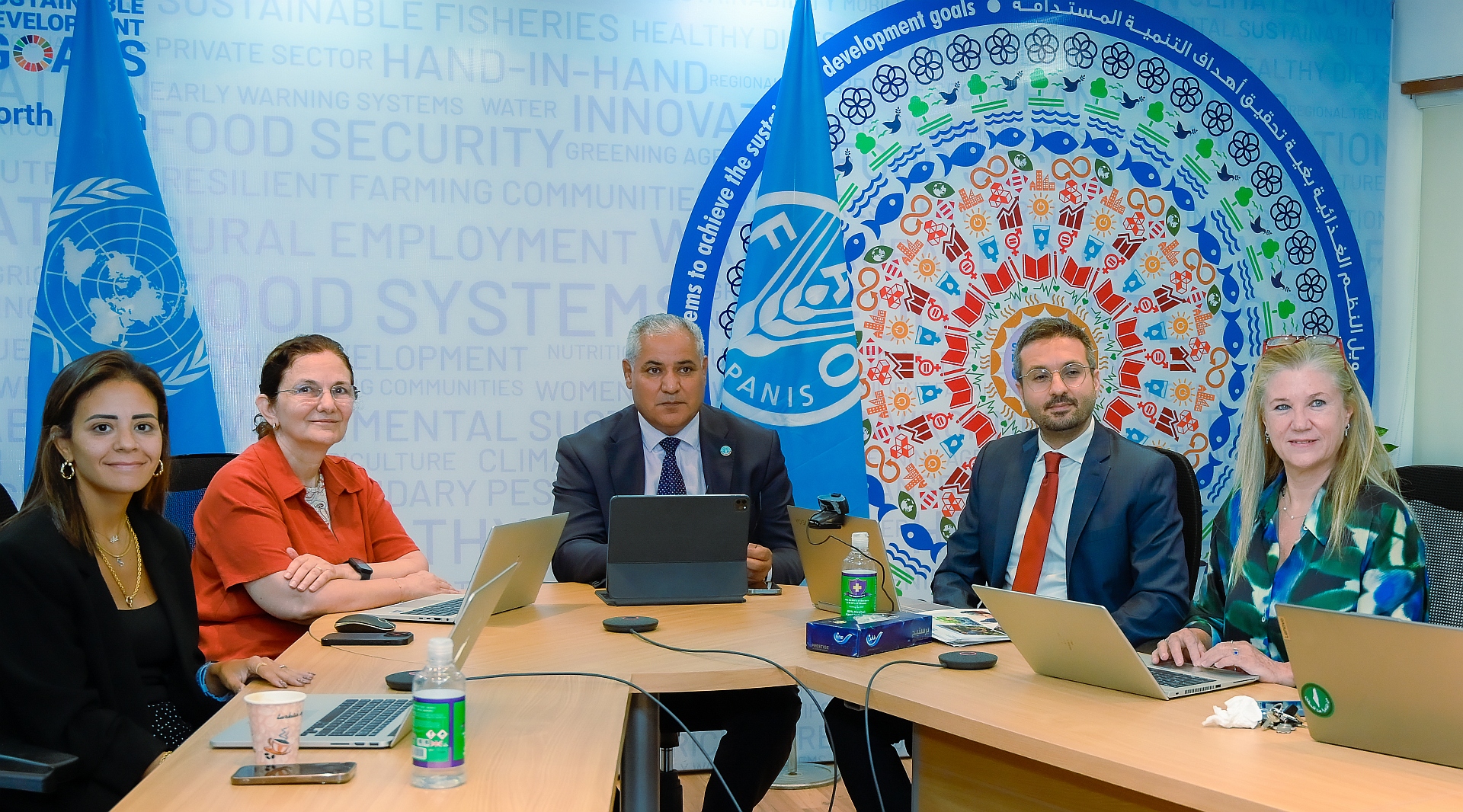FAO-IsDB-IFAD Launch the tripartite Report on Mapping of affordable and transferrable climate smart technologies for smallholders

Under the umbrella of the global Science and Innovation Forum 2024, the Food and Agriculture Organisation (FAO), the Islamic Development Bank (IsDB) and the International Fund for Agricultural Development (IFAD) launched today the report on “Mapping of affordable and transferrable climate smart technologies for smallholder farmers". The report is the result of the strategic tripartite partnership that mobilized the resources and technical expertise of the partner agencies to identify and promote context-relevant technologies and innovative solutions that can tackle the pressing challenges faced by small scale farmers. The mapping exercise was carried out in ten countries, namely: Bangladesh, Brazil, Egypt, Jordan, Palestine, Morocco, Nigeria, Tajikistan, Tunisia, and Türkiye.
The online launching event, held on 7 October 2024, was chaired by AbdulHakim Elwaer, FAO Assistant Director-General and Regional Representative for the Near East and North Africa (NENA), Issa Faye, Director General, Global Practice and Partnerships, IsDB, and Dina Saleh, Regional Director, NEN, IFAD. The event was attended by government officials from agriculture and technology ministries, representatives from international development organizations, selected agricultural technology providers and startups, researchers and academics in the fields of agriculture, technology, and climate change, and farmers' associations and cooperatives.
“FAO underscored the importance of strategic and transformative partnership between FAO-IsDB-IFAD in leveraging science and technology to accelerate socio-economic development and agrifood systems transformation. At FAO, we value the initiative and collaborative efforts exerted by all, and look forward to the continuation and scaling up of our partnership with IsDB and IFAD.” Stated AbdulHakim Elwaer, FAO Assistant Director-General and Regional Representative for the Near East and North Africa (NENA)
.jpeg?sfvrsn=d6167f_1)
During his welcoming remarks, Issa Faye, DG GPP emphasized the significance of this collaboration in addressing the pressing challenges of food insecurity and malnutrition that confront numerous IsDB Member Countries, through the identification of technologies that have mainstreaming potential throughout the crop value chain to improve livelihoods of smallholder farmers and food security among the entire populations.
“At IFAD, our mission is to transform rural economies and food systems by empowering smallholder farmers with the tools and technologies they need to build resilient, sustainable livelihoods. This report is a testament to our commitment to promoting affordable and climate-smart solutions that address the most pressing challenges faced by rural communities. Through our partnership with FAO and IsDB, we are not just mapping technologies; we are creating pathways for smallholders to access the resources, knowledge, and innovations necessary for their long-term prosperity. By fostering inclusive growth and ensuring no one is left behind, IFAD continues to lead the way in driving systemic change for rural development.” Stated Dina Saleh the Regional Director of the Near East, North Africa and Europe Division (NEN) in IFAD.
By identifying, analyzing, and cataloging affordable, reliable, and environmentally friendly technologies, the mapping exercise has resulted in the identification of 120 highly viable green and environmentally friendly technologies on six thematic areas critical to improving productivity and livelihoods of smallholder farmers: 1) postharvest, reducing food loss and waste; 2) water management and water saving technologies in face of climate change; 3) sustainable pest control and crop management; 4) e-commerce and market access, 5) fintech; and 6) green energy for farmers’ agribusiness operations.
One of the key outcomes under this exercise was the development of an innovative decision support tool to streamline the systematic evaluation and prioritization of technologies for deployment in agricultural investment and development programmes. The Green and Climate Smart Technologies Assessment Tool (GC-STAT) incorporates a multi-level assessment process and allows for adaptable weighing of evaluation criteria depending on the context and reflecting the diverse needs and priorities of different stakeholders.
The partner agencies anticipate that both the report on Mapping of affordable and transferrable climate smart technologies, and the GC-STAT decision support tool will contribute to better informed investments and programmes that aim to leverage science and technologies to empower smallholder farmers to thrive amidst multifaceted challenges.
The Launch of the report is leading up to the Science and Innovation Forum (SIF2024), which will be hosted by FAO Headquarters in Rome from 14 to 18 October 2024. SIF 2024’s theme is "Inclusive Science and Innovation for Agrifood Systems Transformation, Leaving No One Behind.", aligned with the World Food Forum (WFF 2024) overall theme of “Good Food for All for Today and Tomorrow.”
